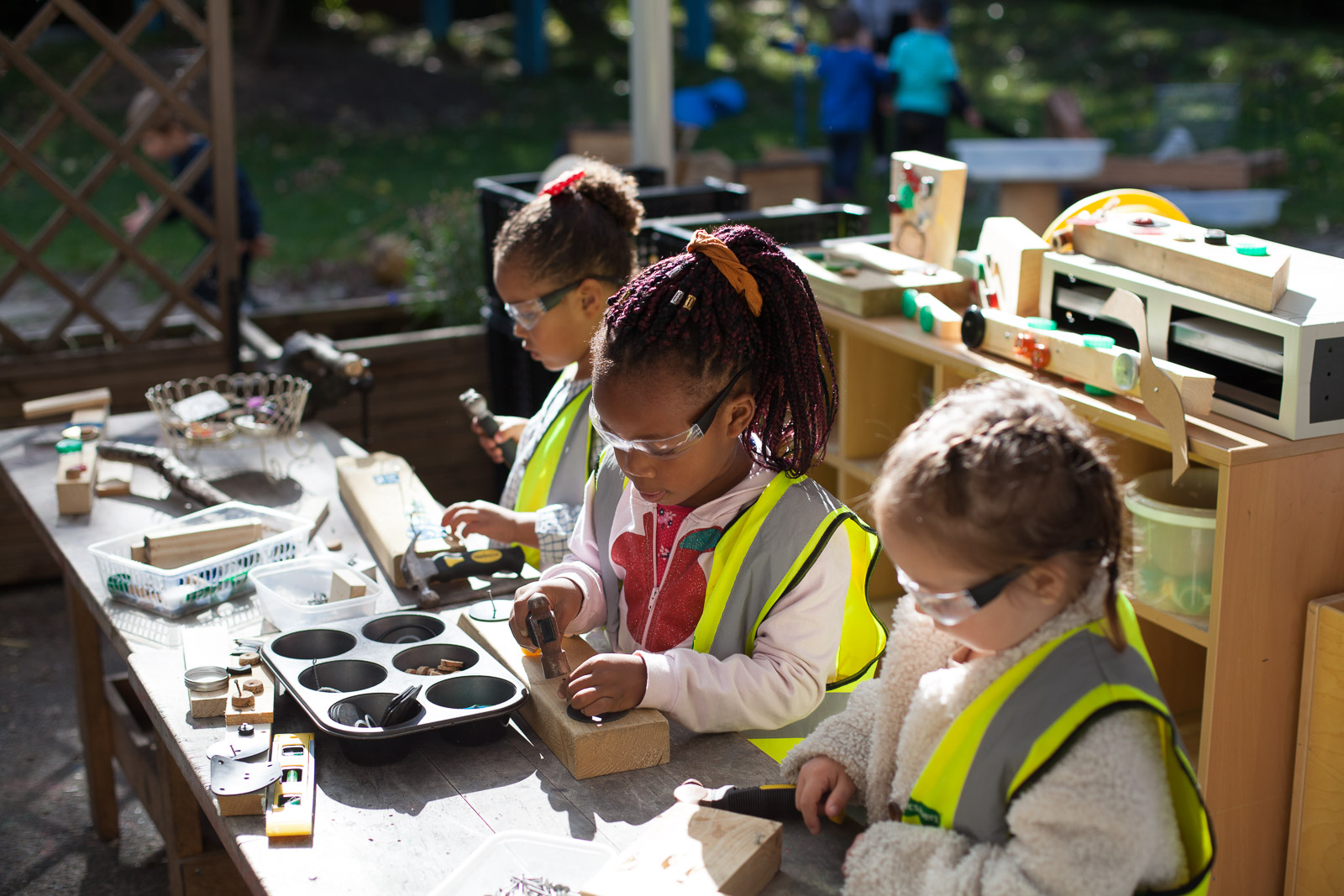Read what Rachna Joshi, Froebelian expert, has to say in the sixth of her monthly blogs about aspects of Froebelian pedagogy at Guildford Nursery School.
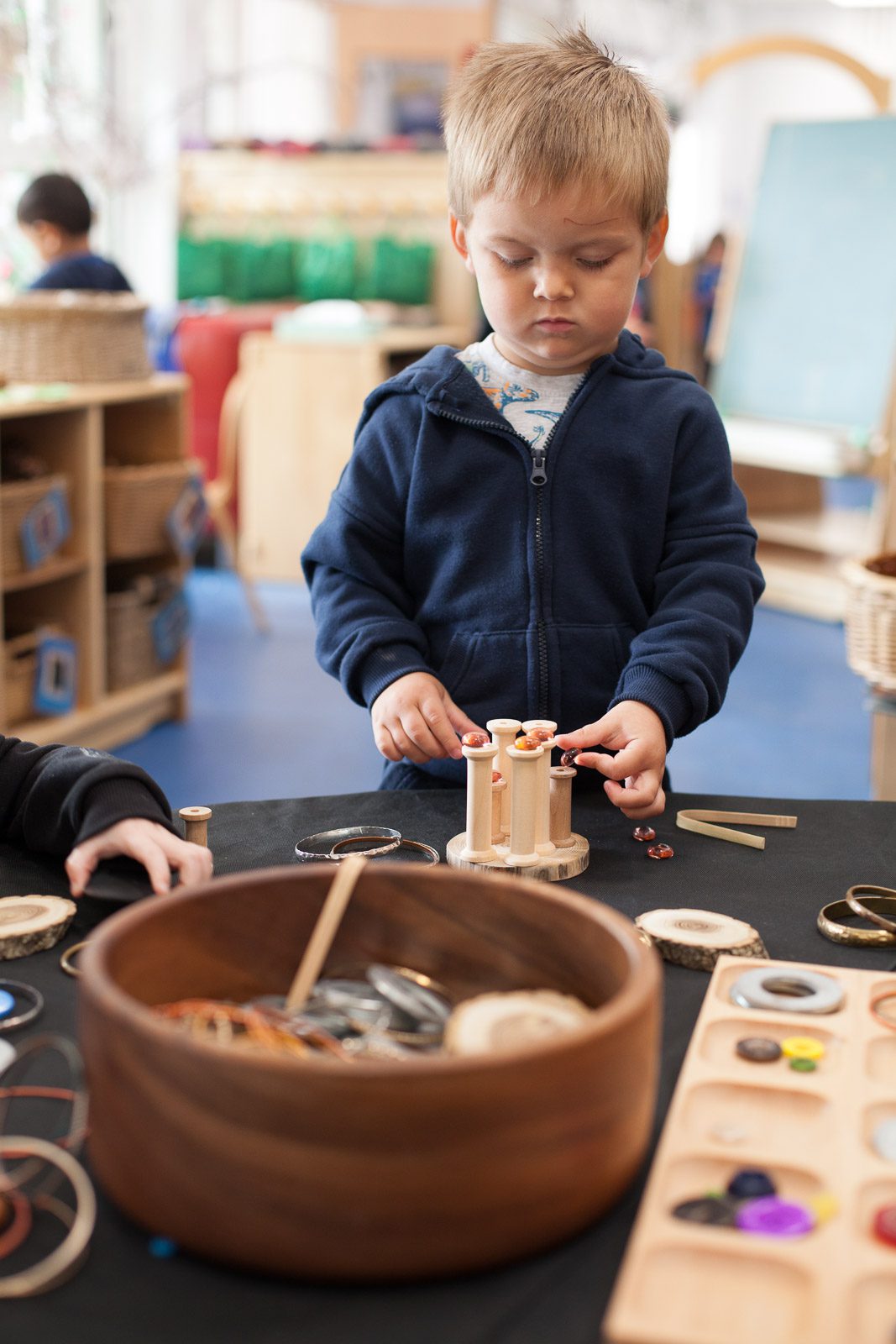
Guildford Nursery School (GNS) is a Froebelian inspired setting, and takes on the Froebelian principles and approach in practice. This includes developing Froebelian Occupations and the meaning behind these open-ended educational activities that deepen children’s experience of the world.
The Occupations are educational experiences based upon real life and practical work. Some examples of the Occupations are: Clay, Woodwork, Cooking, Sewing and Weaving, Paper Folding, Stick Laying. The idea of the Occupations is to relate to real life for the children, to be able to practise the skills associated with these experiences and enable independence and autonomy. As with all of Froebel’s writings and educational thinking, there is much deeper meaning and connection to a wider philosophy through these Occupations.
He understood that a child’s education must be related to real life, beauty and knowledge. Not just to have some grounding in these areas, but to enable children to partake in these ‘forms’. Occupations such as cooking, provide children with important life skills, sewing and weaving supports children’s sustainable lifestyles and mending clothes. These practical elements are one part, the Occupations also provide creativity and symbolic representations of children’s interests, thinking and experiences.
If we consider the current frameworks and systems the Occupations manage to cover important areas of child development, such as problem solving, thinking creatively, exploring with senses as well as developing physically, emotional understanding, literacy and mathematical explorations through woodwork, sewing, weaving and cooking.
There is intention and order with the Occupations – similar to the Gifts, and Froebelian educator Heinrike Schauwecker-Zimmer shared her thoughts on this order during a workshop at the International Froebel Society (IFS) conference in June 2023 building upon Erika Hoffmann’s summary. She describes the ‘dividing and taking apart’ and the ‘building and building up’ processes.
For example, imagine having a block of clay, and slicing and lifting the top layer off. This would leave you with a flat surface of clay, this becomes the ‘Surface, representing the two-dimensional Occupations, such as laying sticks, shape tessellations and folding paper.
Imagine this surface is split again, this time to create the ‘Line’ representing ribbons, thread, rings, and connecting to the Occupations such as weaving, laying, embroidering and sewing.
Finally, imagine breaking the line, to leave a ‘Point’, this represents individual items such as sand grains, berries, seeds.
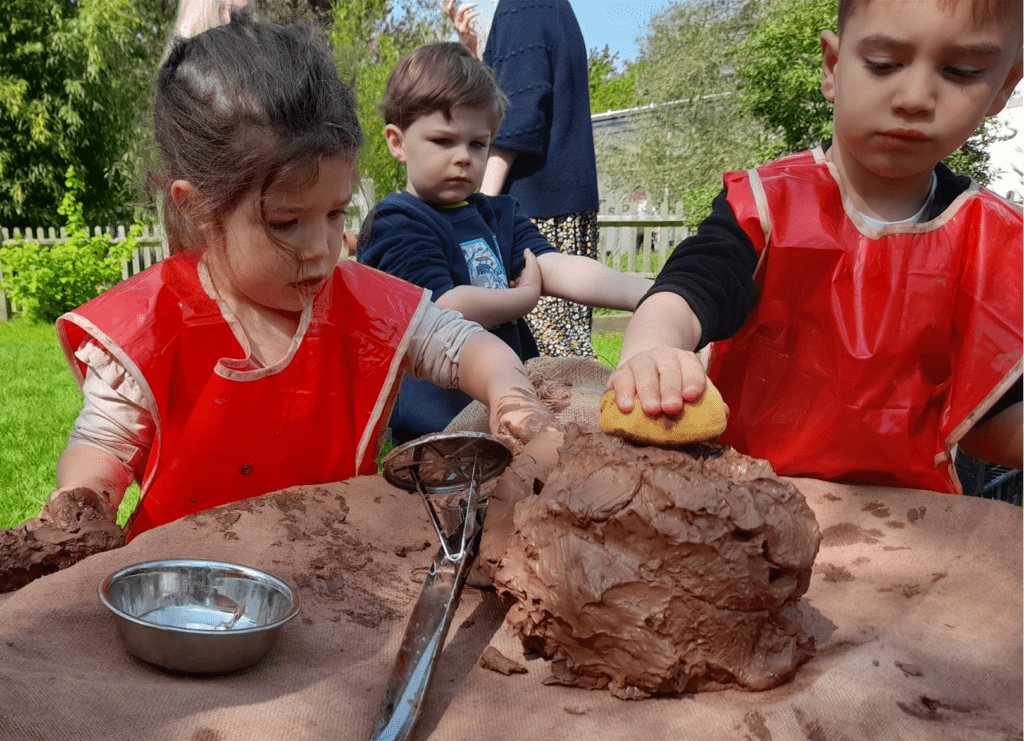
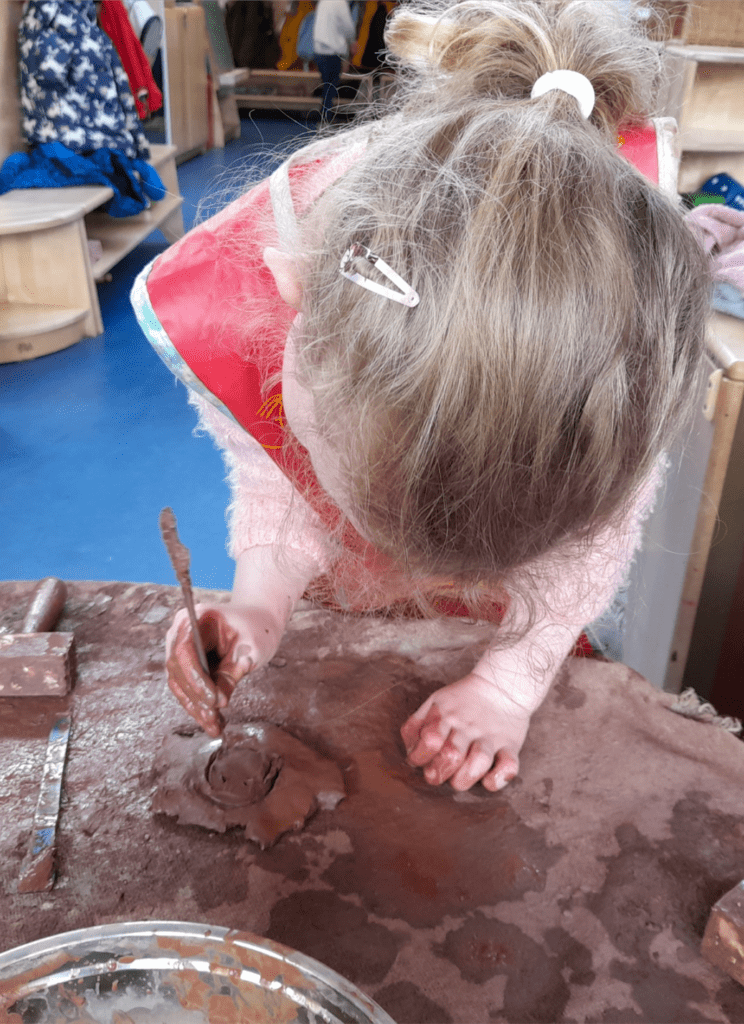
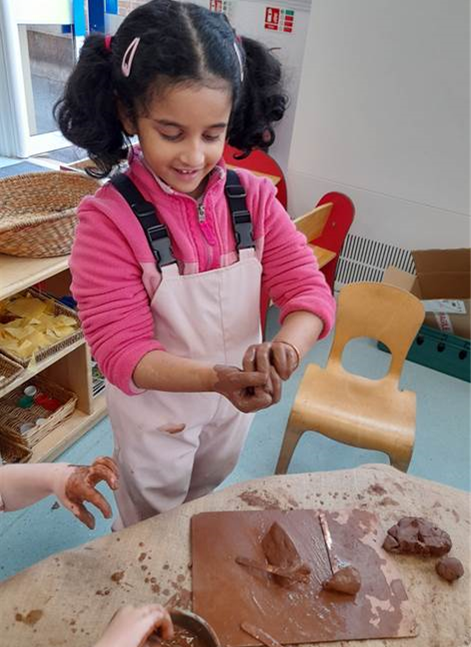
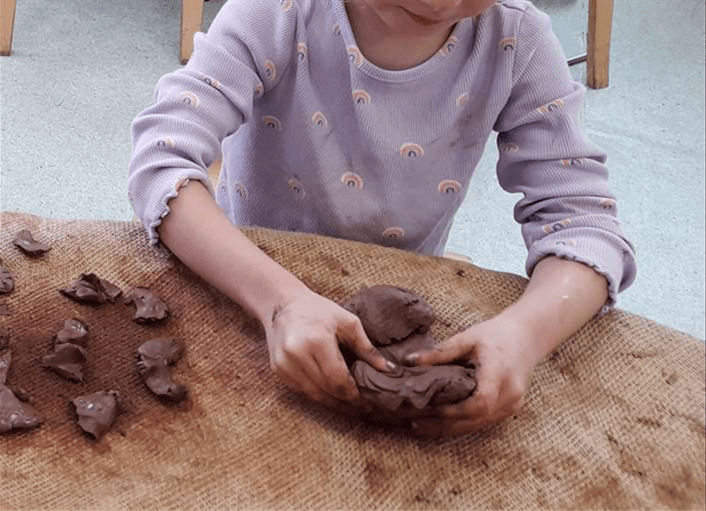
This process would link to the ‘dividing and taking part’, but doing this process in reverse links to the ‘building and building up’. It’s clear to see the careful thought being put into the Occupations in terms of process, sequence and connections.
However familiar you are with the Occupations, they have relevance and are integrated into early childhood education. Many settings have regular opportunities for cooking, sewing, weaving, clay and woodwork. However, the understanding of why, the context and the cohesion within curricula is not always as clear.
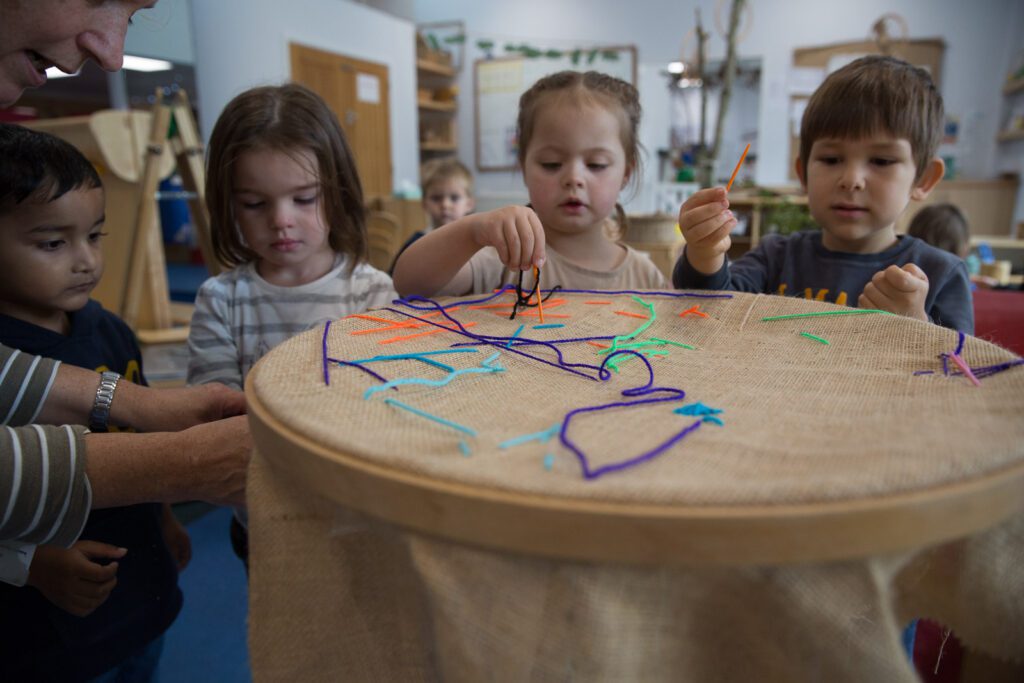
GNS introduce the Occupations with intention, and use this to form part of their curriculum. They are introduced after the Autumn term, to allow time for settling children in. However, prerequisite learning such as developing physical control is focused on in Autumn to make links to the Occupations when they are introduced.
Sewing is done altogether as a group – a conceptualisation of Froebel’s ideas of unity and connection: part and whole. Each child sews a small area however they wish, they focus on being the ‘in and out’ of the needle. Different parts of sewing are introduced to children in different ways, to teach the skills and bring together the parts to create a whole learner who has experience and has mastered some of the skills linked to sewing and weaving. It’s done in such an individual way, with slow pedagogy at the heart – going with and being with the child in each moment.
Cooking, another Occupation, is linked to real life, seasons, occasions and celebrations. When I visited GNS it was close to pancake day, so, of course, the children were making pancakes. They were invited in a small group to follow the recipe, weighing the ingredients, cracking eggs, and mixing. They watched the hot pan as the educator cooked the pancake and helped them flip it over. They then sat and ate the pancake to complete the whole process! The children also invited others to join them in trying some pancakes they had made: a sense of community.
Cooking, as many educators know, is a staple in so many settings and classrooms, however areas such as Clay, Sewing or Woodwork may not be. For clay, many educators use playdough, which may be appropriate sometimes, but Clay provides longer lasting, more economical and a more malleable purposeful resource. Clay is a natural material, no need for it to be thrown away, instead it can be cleaned and cared for so it can last years.
There are many versions of Sewing and Weaving in classrooms, however knowing the process and the explicit teaching of these skills provides more than fine motor strengthening, instead a holistic approach of sustainability, process and outcome, and connection to life can be drawn from this Occupation.
Some educators are worried about the safety of introducing Woodwork to young children, however, it is important to discuss safety and set up rules and guidance to ensure children can use resources safely. It is important to have opportunities for children to manage these risks within their environments, this helps to develop autonomous and independent children.
The Froebel Trust pamphlets provide reference to Froebelian principles and practice to each of these Occupations, as well as the Froebel Partnership’s free training to help support those wishing to introduce or deepen the Occupations in their settings.
